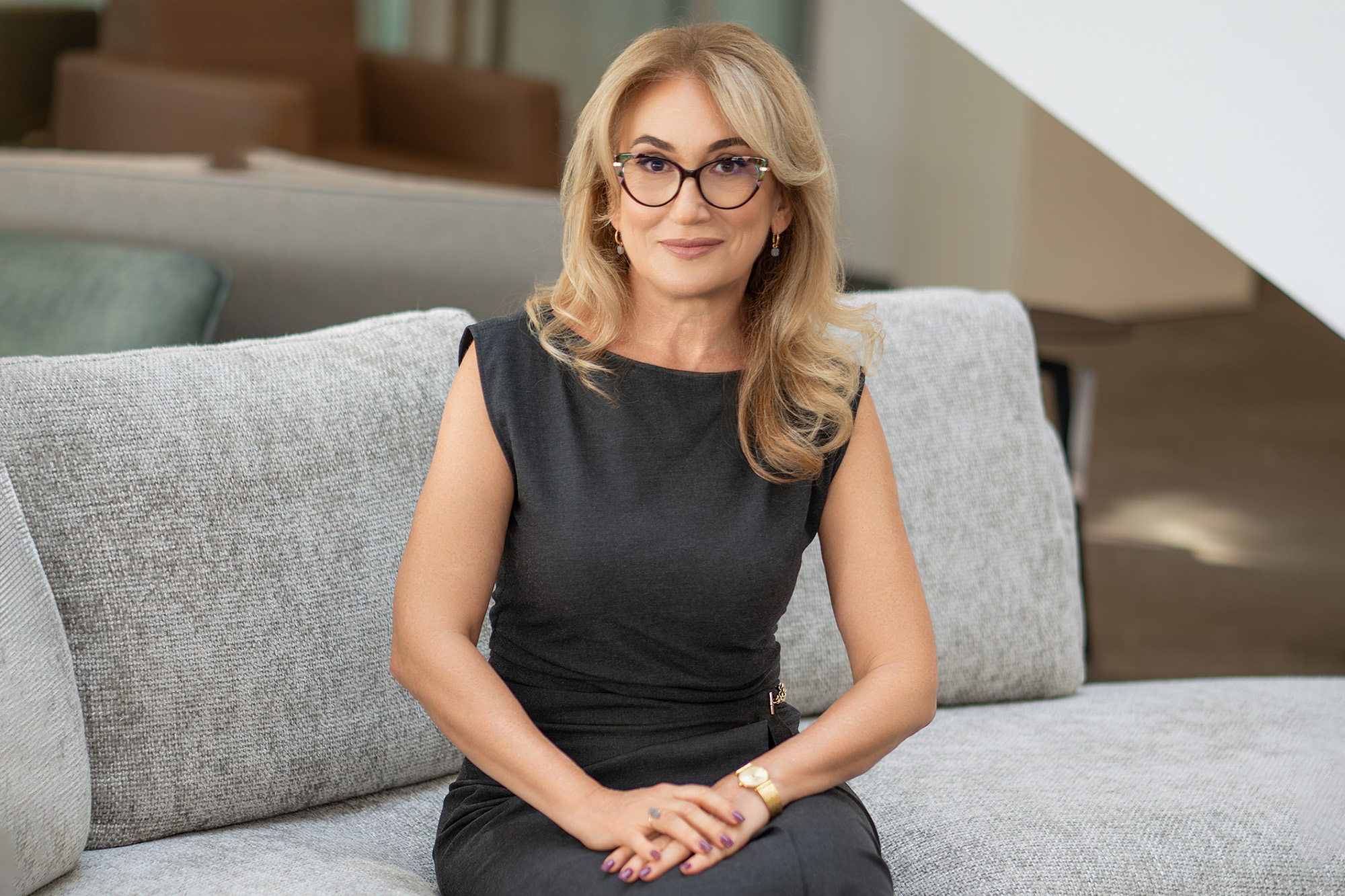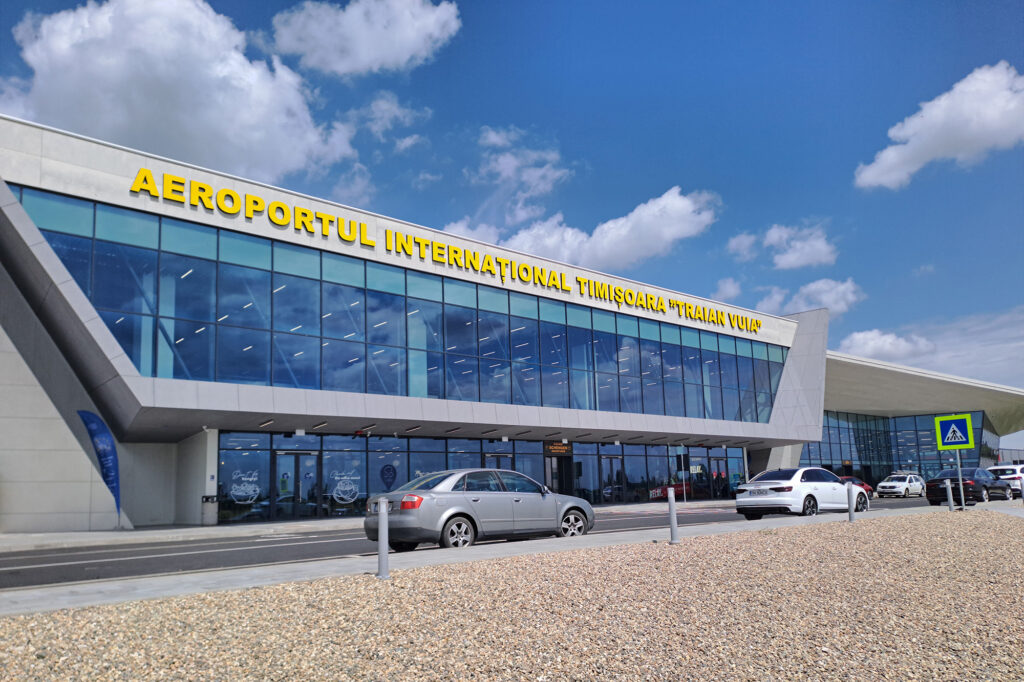
Interview with Andreea Strugaru, Head of Marketing at EMI Group
As soon as we became part of EMI Group, I learned to look beyond the boundaries of a single brand and build a communication strategy for a European group.
1.You were one of the founders of KADRA, and since 2023 – when the company joined EMI Group – you have taken on the role of Head of Marketing at group level. How did this transition unfold for you?
It was a transition with a lot of personal weight. KADRA was never “just a company” to me—it was a life project where I invested a great deal of emotional energy. At first, it felt almost like letting go of something I had built from the ground up, with a sense of “abandoning” it. But as soon as we became part of EMI Group, I gained a new perspective: I learned to look beyond the boundaries of a single brand and build a communication strategy for a European group. It has been both challenging and rewarding—I realized I wasn’t leaving KADRA behind, but carrying its story forward on a bigger stage.
2. What have you discovered is different – or similar – between communicating for a strong local brand and for an international group?
The foundation is the same: everything starts with the audience and the business objectives. What changes is the level of complexity. For a local brand, you know exactly where to meet your audience—whether that’s a construction forum or an architecture conference. At European level, it’s not that straightforward. In Belgium or the Netherlands, for example, business communities operate differently, and I need to understand where and how to engage with them. Another major challenge is creating a unified voice for the group without erasing the identity of each company. That’s what we’re building at EMI Group—a unifying force that connects diverse cultures and identities into a coherent European brand.

3. EMI Group aims to become a European leader in automatic access systems. From your perspective, what challenges and opportunities come with promoting technical solutions across different markets?
The challenge is tied to the maturity of the markets. In Western Europe, price is not the first criterion—quality and sustainability carry more weight. In Romania, the market is still very price-sensitive, but in reality, service quality and technical expertise make the real difference. If you install a gate flawlessly and provide professional maintenance, the system will run smoothly for years without disrupting operations. That’s equally true whether your client is in Romania, Belgium, or the Netherlands.
The opportunity lies in the exchange of know-how between group companies. Each has its own expertise and experiences, and sharing them multiplies results. From a communication perspective, the greatest opportunity is to tell these stories and attract other European entrepreneurs who recognize themselves in our journey and want to be part of it.
4. EMI Group operates with a decentralized business model. How does that reflect in the marketing strategy, and how can it be turned into a differentiator?
For me, the major differentiator is entrepreneurial freedom. Each company in the group has the autonomy to preserve its DNA, while benefiting from shared resources and know-how. From a marketing standpoint, this allows us to tell authentic local stories that are connected by a common European thread. In a market dominated by large corporations with rigid, centralized structures, EMI Group’s approach—preserving identity while enabling growth through synergies—is a unique advantage.

5. How do you approach creating a coherent strategy for EMI Group, given the diversity of local brands?
My starting point is this: we don’t standardize, we amplify. Each brand already has recognition and trust in its local market. My role is to turn these local stories into a competitive advantage for EMI Group at European level. The group strategy is anchored in our major goals—growth, acquisitions, positioning in the top three across key markets—but it is built on the foundation of each company’s identity. In practice, we don’t “level out” differences, we highlight them within a shared framework.
6. If you were to send a message to founders of access-system companies who might be in the position you were before joining EMI Group, what would you say?
I would tell them that I deeply understand their dilemma—I lived it myself. It’s not easy to imagine putting your company “in someone else’s hands.” But my experience has shown me that you don’t lose what you’ve built—you give it a new life. Joining a group like EMI means access to resources, new markets, know-how, and above all, a guarantee of continuity for your team and your brand. It’s a decision that brings peace of mind and security, but more importantly, it gives you the chance to see your company grow beyond what you could have achieved alone.

7. Looking back, what helped you personally navigate this transition and keep a sense of continuity?
One important thing for me is that I never really “let go” of the KADRA brand. I still oversee its communication, which helped me avoid the feeling of having abandoned what I built. In my new role, I can still act locally, putting my experience to use while contributing to the bigger picture. And perhaps the greatest privilege is that I genuinely enjoy what I do—something I see as a luxury, but one I’ve earned and fully embrace.